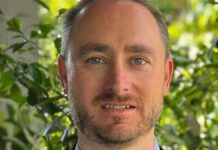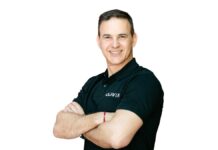By Gunter Pauli
Hope is more than a feeling; it’s a driving force. It’s what pushes people to innovate, to act, and to build solutions when none seem to exist. In a world full of complex challenges, hope can be one of our most powerful and overlooked resources. It doesn’t emit carbon, it doesn’t deplete, and yet, it fuels some of the most transformative ideas of our time.
The problems we face today are well documented—climate change, plastic-choked oceans, and forests disappearing faster than we can plant. But you’ve already heard the bad news. I’m not here to recycle it. I’m here to talk about what’s possible. That’s what energizes me. Because where others see limitations, I see opportunities.
We need to start celebrating resourcefulness over resources. I’ve seen villages power their schools with mushrooms grown on coffee waste. I’ve seen fishermen raise their incomes because they created a safe haven for females to brood their eggs. I’ve seen detergents made from discarded orange peels. Why extract more from nature, when we haven’t even learned to use what we already have?
But what fuels these ideas isn’t money or technology. It’s belief. It’s hope.
I’ve spent time in over 100 schools and what I’ve seen is nothing short of revolutionary. Young minds don’t carry the burden of “what can’t be done.” They ask: why not? My upcoming book No Limits to Learning captures that spirit—one that sees the classroom not as a rehearsal space, but as a launchpad for real change.
One such launchpad is the Zayed Sustainability Prize. It’s not just an award; it’s a spotlight on ideas that work. While US $5.9 million dollars may be a drop in the ocean of global funding, when it’s directed to grassroots projects in health, energy, food, water or climate action, it creates ripples that become waves. That’s impact.
Over the past 17 years, the Prize has helped scale innovations that now reach more than 400 million people across the world. I have the privilege of serving on its Selection Committee for over a decade, where I’ve seen firsthand how innovative, grassroots solutions – when recognised and supported – can spark entirely new ecosystems of change.
We are told to be realistic. I say: be surprising. Be unreasonable. That’s how nature works. Coral doesn’t ask permission before growing into a reef. A tree doesn’t apologize for breaking through concrete. Hope, too, is persistent. It demands that we see problems as design challenges, not dead ends.
Every day, we can choose to complain, or we can choose to create. And today, we must create. Not just cleaner energy, but new thinking. Not just less food waste, but more imagination.
Let’s stop waiting for silver bullets. Let’s build with what we’ve got. Let’s teach kids that the most powerful engine is the one between their ears. And let’s remind the world that the greatest renewable energy we’ve never measured is hope. And it’s time we used it.
If you’re part of an organisation or a high school working on a solution that’s making a difference, you should apply to the Zayed Sustainability Prize. It’s not just about recognition. It’s about joining a global community of doers, builders, and believers who know that the future is something we create, not wait for. Visit ZayedSustainabilityPrize.com and be part of the next wave of innovators shaping a better tomorrow.








